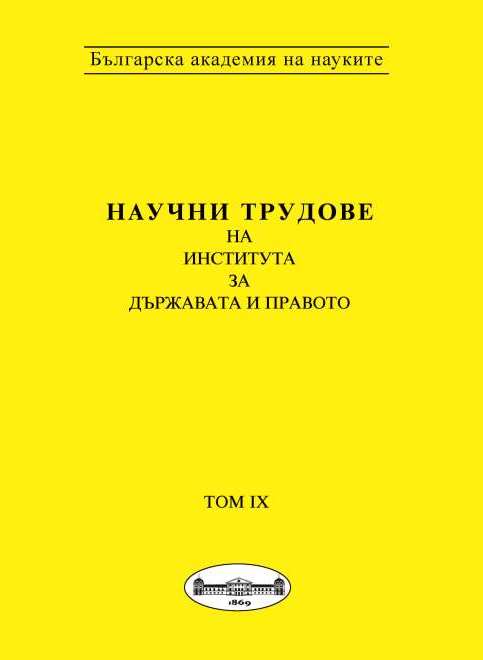Закрила на слабата страна при трудовите отношения с международен елемент в европейското международно частно право
Protection of the weaker party to individual employment contracts in the European private international law
Author(s): Plamenka MarkovaSubject(s): Law, Constitution, Jurisprudence
Published by: Институт за държавата и правото - Българска академия на науките
Keywords: international law; European national labour law systems; Brussels I; Rome I.
Summary/Abstract: The study looks into European PIL of employment which is concerned with supra-national interests. It performs a regulatory function, one of allocating and protecting regulatory authority of states in the field of labour law, thus maintaining and managing the diversity of European national labour law systems and safeguarding the objectives of uniform and harmonised EU employment legislation. As the analysis of the objective of employee protection in the paper shows, the distribution of adjudicatory authority should be performed through jurisdictional rules that guarantee employees the right to pursue their claims in favourable forums, and not to defend their cases in unfamiliar and inaccessible forums. Jurisdictional preference accorded to employees, however, should be proportionate and take into account the states’ legitimate interests. The distribution of legislative authority should be performed through choice-of-law rules that safeguard the application of the law of the state that is sufficiently closely connected with the employment contract in question, legitimately interested in regulating it, with which law the parties to the contract are sufficiently closely connected and presumably familiar, and whose application they reasonably expect. In addition, party autonomy should be allowed as long as it benefits the employee by building upon the mandatory minimum standard of protection set by the objectively applicable law. It demostates that the rules concerning employment of Brussels I and Rome I largely accord with the mentioned considerations. Nevertheless, it suggests that the recast Regulation 1215/2012 still needs further amendments. Furthermore, it is suggested that Rome I would be improved by the abolition of the rule of the engaging place of business.
Journal: Научни трудове на Института за държавата и правото
- Issue Year: 2014
- Issue No: IX
- Page Range: 142-181
- Page Count: 40
- Language: Bulgarian
- Content File-PDF

